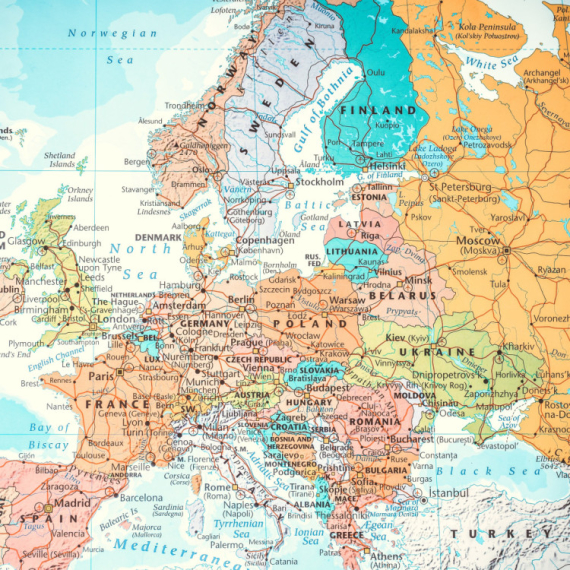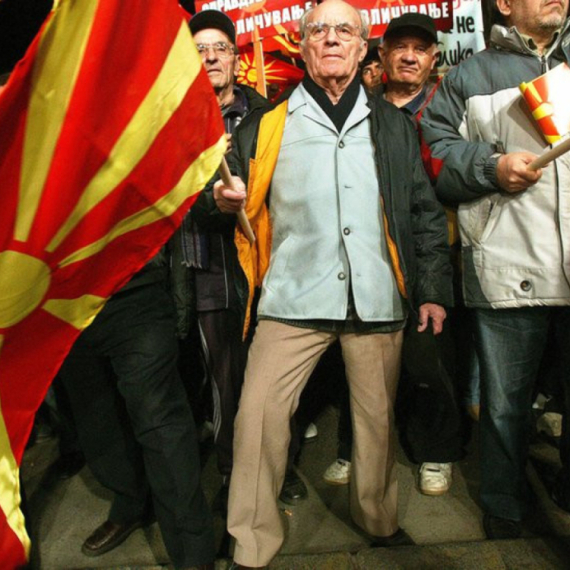Ahtisaari says Serbia "lost Kosovo"
Martti Ahtisaari, joined by two other diplomats who were involved in the Kosovo status negotiations, says Kosovo is "lost for Serbia".
Monday, 16.02.2009.
14:05

Martti Ahtisaari, joined by two other diplomats who were involved in the Kosovo status negotiations, says Kosovo is "lost for Serbia". However, the architect of a plan for the province's supervised independence, rejected by Belgrade and never adopted at the UN, along with his deputy Albert Rohan and German diplomat Wolfgang Ischinger, writes that the Kosovo problem is still not solved "because Serbia persists in its rejection of the new reality, and is doing everything in its power to prevent normalization." Ahtisaari says Serbia "lost Kosovo" The commentary, published by the Project Syndicate, further states that Kosovo Albanians' unilateral declaration of independence on Feb. 17, 2008, was recognized "by more than 50 countries representing close to 60 percent of the world's economic power". "Interethnic violence - which many feared - has largely been avoided, and the mass exodus of Serbs that some also predicted has not occurred. The Comprehensive Proposal for the Kosovo Status Settlement (the so-called Ahtisaari plan), which provides for international supervision of Kosovo's independence, is gradually being implemented. A large civilian European Union mission has been deployed", write the three diplomats. "On orders from Serbia's government," they continue, "Kosovo Serbs, who represent some five percent of the population, refuse to cooperate with Kosovo's government and the EU mission. In doing so - and this is the irony of the matter - Serbs themselves are preventing the early implementation of the wide-ranging community rights foreseen in the Ahtisaari plan, which would bring to them a normal and secure life." "On the international level, Serbia - with strong support from Russia - is actively engaged in blocking Kosovo's accession to the United Nations and other global or regional organizations," the commentary says. "It is difficult to comprehend what Serbia aims to achieve. Nobody will deny that, for any state, being separated from part of its territory is a painful matter - even if a different ethnic group largely populates that territory. Still, there are examples in recent history when this has been achieved in a consensual manner," Ahtisaari, Rohan and Ischinger argue. "Serbia's democratic leaders of today must understand that the loss of Kosovo - although not their doing - is an irreversible reality with which they must come to terms. All they can achieve with their current policy of rejection is to delay the much-needed stabilization of the region following the break-up of Yugoslavia, and to make life miserable for Kosovo and its people. Would it not be wiser to give a helping hand to the infant state, turning hostility into friendship and thus securing the future presence of Serbs in Kosovo?," the authors wonder. The three diplomats also describe Kosovo as "first of all, a European problem", with this organization having "the primary responsibility to turn it into a success story". "Regrettably, the union's inability to agree on a common policy has not only weakened its role on the international level, but has also become a major obstacle to determined action in the country itself. The five member states that continue to withhold recognition of Kosovo should be aware that their stance encourages those who reject the EU mission any cooperation and impede its work," the article continues. The authors conclude that the EU countries refusing to recognize the proclamation are "also making it infinitely more difficult for moderate forces in Serbia to adjust to the new situation". "Only a unified EU position, combined with the knowledge that EU accession for Serbia is unthinkable as long as this conflict has not been fully resolved, may over time lead to a change of attitude on the part of both ordinary Serbs and their government," say Ahtisaari, Rohan and Ischinger, and warn that "the relative calm now prevailing in Kosovo" should not "mislead anyone". "The Balkans' recent tragedies have shown that problems that remain unresolved sooner or later turn into open conflict, and that the costs become unbearable for all. There is no time for complacency," the article continues, and ends with a quote from – U.S. President Barack Obama: "Our time for standing pat, for protecting narrow interests and putting off unpleasant decisions - that time has surely passed."
Ahtisaari says Serbia "lost Kosovo"
The commentary, published by the Project Syndicate, further states that Kosovo Albanians' unilateral declaration of independence on Feb. 17, 2008, was recognized "by more than 50 countries representing close to 60 percent of the world's economic power"."Interethnic violence - which many feared - has largely been avoided, and the mass exodus of Serbs that some also predicted has not occurred. The Comprehensive Proposal for the Kosovo Status Settlement (the so-called Ahtisaari plan), which provides for international supervision of Kosovo's independence, is gradually being implemented. A large civilian European Union mission has been deployed", write the three diplomats.
"On orders from Serbia's government," they continue, "Kosovo Serbs, who represent some five percent of the population, refuse to cooperate with Kosovo's government and the EU mission. In doing so - and this is the irony of the matter - Serbs themselves are preventing the early implementation of the wide-ranging community rights foreseen in the Ahtisaari plan, which would bring to them a normal and secure life."
"On the international level, Serbia - with strong support from Russia - is actively engaged in blocking Kosovo's accession to the United Nations and other global or regional organizations," the commentary says.
"It is difficult to comprehend what Serbia aims to achieve. Nobody will deny that, for any state, being separated from part of its territory is a painful matter - even if a different ethnic group largely populates that territory. Still, there are examples in recent history when this has been achieved in a consensual manner," Ahtisaari, Rohan and Ischinger argue.
"Serbia's democratic leaders of today must understand that the loss of Kosovo - although not their doing - is an irreversible reality with which they must come to terms. All they can achieve with their current policy of rejection is to delay the much-needed stabilization of the region following the break-up of Yugoslavia, and to make life miserable for Kosovo and its people. Would it not be wiser to give a helping hand to the infant state, turning hostility into friendship and thus securing the future presence of Serbs in Kosovo?," the authors wonder.
The three diplomats also describe Kosovo as "first of all, a European problem", with this organization having "the primary responsibility to turn it into a success story".
"Regrettably, the union's inability to agree on a common policy has not only weakened its role on the international level, but has also become a major obstacle to determined action in the country itself. The five member states that continue to withhold recognition of Kosovo should be aware that their stance encourages those who reject the EU mission any cooperation and impede its work," the article continues.
The authors conclude that the EU countries refusing to recognize the proclamation are "also making it infinitely more difficult for moderate forces in Serbia to adjust to the new situation".
"Only a unified EU position, combined with the knowledge that EU accession for Serbia is unthinkable as long as this conflict has not been fully resolved, may over time lead to a change of attitude on the part of both ordinary Serbs and their government," say Ahtisaari, Rohan and Ischinger, and warn that "the relative calm now prevailing in Kosovo" should not "mislead anyone".
"The Balkans' recent tragedies have shown that problems that remain unresolved sooner or later turn into open conflict, and that the costs become unbearable for all. There is no time for complacency," the article continues, and ends with a quote from – U.S. President Barack Obama:
"Our time for standing pat, for protecting narrow interests and putting off unpleasant decisions - that time has surely passed."

























































Komentari 27
Pogledaj komentare